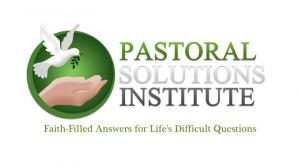The following article is part of our ongoing series on the Liturgy of Domestic Church Life. To learn more, join our Facebook discussion group: CatholicHŌM (Households on Mission)–Family Discipleship
====
In the Liturgy of Domestic Church Life, the practices associated with the Rite of Christian Relationships are all intended to promote “secure attachment.” Secure Attachment isn’t just a good thing for your mental health, the Liturgy of Domestic Church Life helps us see the spiritual significance of fostering secure attachment as well. But let’s start with the basics.
Secure Attachment is the gut-level, natural ability to fully participate in healthy relationships. People who are securely-attached have the ability to choose healthy people to be in relationship with and have a gut-level sense of how to give themselves to others in healthy ways. Securely-attached people are certainly not perfect, but on a natural level, they are much less likely to put themselves in situations where they will feel used/taken advantage of by others and they are much less likely to use or take advantage of others.
Where Does Our “Attachment Style” Come From?
Over 80 years of research shows that people develop secure attachment by being raised in families that…
1) are extravagantly affectionate
2) respond promptly, generously, consistently cheerfully each other’s needs
3) adopt loving-guidance approaches to discipline.
4) prioritize family time and emphasize togetherness.
By contrast, when families are stingy with affection, resentful or resistant to responding to each other’s needs, use heavy-handed approaches to discipline, and/or do not prioritize family time and togetherness, people tend to develop “insecure attachment.” People who are insecurely attached tend to be more naturally inclined to be used (anxious attachment) by others, or to be users themselves (avoidant attachment). They don’t mean to. It just feels normal to be treated/treat others “that way.”
In light of the above, you can see how attachment research helps us understand why St John Paul argued that the opposite of love was not hate, but “use.” The tendency to allow ourselves to be used or to use others stands as a block to authentic, intimate communion with others–and even with God.
Insecure Attachment: Two Types
People with Anxious Attachment always feel like it’s their job to “get” other people to love them, They blame themselves (instead of setting limits) when they are treated poorly. In fact, for some people with Anxious Attachment, being treated well feels “fishy.” A client with anxious attachment once said, “I always feel like they (i.e., a person who truly loves them) want something even when they say they don’t. I’m like…, ‘then why are you being so nice to me?’ I don’t like it. I don’t trust it.”
Human attachment predicts “God Attachment.” Anxiously God-attached people tend to fear being on-the-outs with God. They tend toward scrupulosity and, in general, struggle to trust that God “really” loves them in a personal way. Although they know they “should,” they don’t really feel like they can count on God’s love, especially when they have sinned or feel that they don’t deserve it.
People with Avoidant Attachment are allergic to the idea of being needed “too much” which tends to make them stingy with affection, approval, or service. They often feel “suffocated” in relationships and even normal levels of intimacy feel “needy” to them. As a result, they often end up taking much more in relationships than they are ever willing to give–especially with spouses and children. They usually aren’t conscious of this, but that doesn’t make it any less true.
Again, human attachment predicts “God Attachment.” Avoidantly God-Attached people tend to either struggle to have a relationship with God at all or tend to have a very duty-bound, quasi-contractual relationship with God. They follow the rules and expect God to look out for them in return.
Attachment and the Christian Walk
Christians know that we are created for communion. St John Paul reminded us that building the kingdom of God was primarily about creating “communities of love” this side of Heaven. It is the Christian’s “full time job” (so to speak) to cooperate with God’s grace to both heal the damage sin does to our relationships and create the most intimate communion possible with the people God has placed in our lives.
In a sense, these are theological ways of referring to what psychologists call “Secure Attachment.” Developing Secure Attachment is more than just a “nice thing to do” to improve our quality of life on earth. I would argue it has a great deal to do with the next life was well.
Attachment and Eternity: A New Perspective on Heaven, Purgatory, and Hell
As Christians, we know that we are destined to spend eternity in the most intimate communion possible with God and the entire Communion of Saints. In Heaven there will be no secrets, no divisions, no defenses, no using or being used. In theory that sounds amazing, but for some, the reality could be more than a little terrifying.
Think about it. If healthy, intimate relationships in this life could feel so… “uncomfortable,” “intimidating,” “threatening,” and “suffocating” for some that they would need to “get away” to protect ourselves, just imagine what it would be like for such a person to spend an eternity surrounded by the most intensive relationship possible–the very heart of Love Itself– without any possibility of escape.
What if everywhere you turned, everywhere you went, there was just…MORE. More love. More intimacy. More intensity. More relationship and relating. And what if everywhere you turned you were greeted by the inescapable demand for more and more and more from you in return. Would you know how to rise to this? Rejoice in it? Or would you just want to run and hide?
And what if there was no where to run?
The securely attached person would be hard-pressed to think of anything more wonderful. Why would you want to run from this? It’s what the securely-attached person dreams of!
But the insecurely attached person could find this image terrifying. They already feel tormented by the demands of intimacy in this life.
What if Purgatory was simply the logical extension of God’s Divine Plan for healing the attachment wounds caused by sin–the attachment wounds that threaten our ability fully and freely participate in loving communion with God and others?
What if the fires of Hell were simply the flames of God’s love licking at the hearts of those who could not melt?
What if it was the responsibility of the Liturgy of Domestic Church Life to help people achieve the secure attachment that enabled them to experience the full presence of God without fear? Isn’t that what it means to think of family as a “school of deeper humanity” (Gaudium et Spes, 52) or, more colloquially) a “saint-making machine”
Earned Secure Attachment: Embracing the Cross
Whatever our current attachment style may be, by cooperating with grace to challenge ourselves and those we love to develop “earned” secure attachment–that is, the Secure Attachment that comes from doing the work necessary to make our relationships as healthy and intimate as possible– we prepare ourselves, on a human level, to enter more fully into the experience of grace that is the Beatific Vision.
But even the most securely attached person isn’t prepared for the love God has waiting for us. What if, “taking up our cross” really means doing the truly hard work we need to do to achieve the secure attachment in this life that facilitates our full participation in the Heavenly Communion in the next? How would that change your perspective on the importance of the Liturgy of Domestic Church Life in God’s plan for saving the world?
To learn more about how you can begin to heal your attachment wounds, visit this site for an excellent, professionally-validated test to assess your attachment style. Whatever your results, know that by dedicating yourself to living out the Liturgy of Domestic Church Life you are not only making your earthly relationships richer and more rewarding, you are also preparing yourself and those you love to spend eternity celebrating the experience of being in the very presence of Love Itself.

